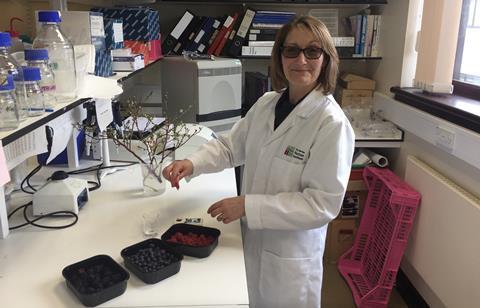Institute has embarked on a five-year project focused on tackling the economic issues affecting the UK’s raspberry growers
The Raspberry Economics in Production project has been awarded £1mn in funding from UK Research and Innovation’s (UKRI) Innovate UK programme, to focus on improving the sustainability of raspberry production in the UK.

It comes as challenges such as rising production and labour costs, and the reduction of available pest and disease control measures, pose severe risks to the industry.
In response, the project will focus on developing raspberry varieties that require less water, fertiliser and labour to grow.
Growers’ costs have risen by 25 per cent in the last two years, whilst retailer returns indicate a 0 per cent increase, the James Hutton Institute stated.
“The UK raspberry industry is at a critical crossroads,” said Dr Julie Graham, who leads the project at the Institute.
”While growers face rising costs, competition is increasing from cheaper imports. Add the pressure brought about by climate change, and it paints a bleak picture.
“We’ll utilise cutting-edge genetic technology to develop varieties more resistant to climate change, which require fewer resources to grow,” she noted.
“The project aims to safeguard the future of the industry while also supporting rural economies and the environment.”
Using advanced genetic techniques such as genomics, transcriptomics and phenomics, the project will identify and apply traits in raspberries that make them more cost-effective to grow and more resilient to changing climates.
Renowned for breeding a versatile range of raspberry varieties including Glen Ample, the Institute said it would continue to build on its expertise in the industry by collaborating with a consortium of partners.
“Working in partnership with the Hutton on this project is vital for the future of raspberry production in the UK,” said Peter Thomson from Thomas Thomson Blairgowrie.
“Developing new, resource-efficient varieties will help growers meet rising challenges and ensure long-term sustainability.”
The project is also supported by Berryplants, Dole UK, The Asplins Producer Organisation, Angus Soft Fruits and the Institute’s commercial arm, James Hutton Limited.



